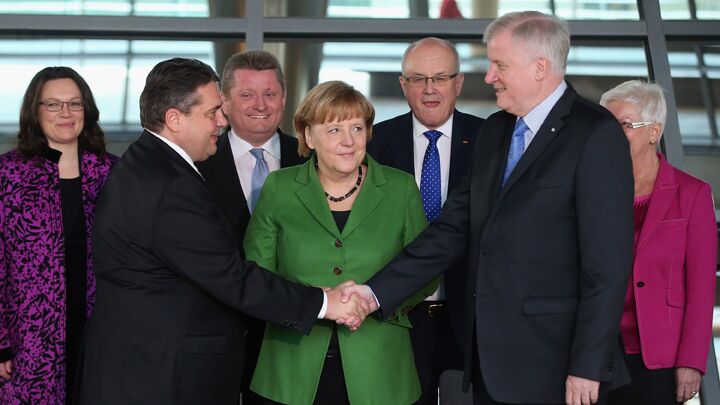
Germany Nears Functioning Government
Germany’s three main parties agreed on the framework for Germany’s next coalition on November 27, clearing the way for the next German government to take office. However, the left-wing Social Democratic Party (spd) has promised to first allow its members to vote on the agreement. If they approve it, Chancellor Angela Merkel hopes to be sworn in on December 17.
If they reject it, Mrs. Merkel will either have to call fresh elections or form a coalition with the Green Party.
This final obstacle could still derail the coalition. The Economist writes that the agreement “is far from guaranteed.” All coalitions demand compromise. Although most agree that the spd got a good deal, many of the hard-core party members do not like it, with some accusing their leaders of betrayal.
The gist of the agreement is that Germany will increase social spending without raising taxes, and will put greater restrictions on the labor market. The general consensus is that the proposed reforms could undermine Germany’s strong economic growth—an outlook that even the left-leaning magazine Speigel agrees with.
For information on the military and European part of the agreement, see our article “New German Coalition to Pursue European Army.”
Cabinet posts have not yet been announced. These are probably more important than the agreement itself—Merkel ignored several parts of the last government’s coalition agreement—but cabinet positions determine who holds the power in government.
For the last few months, Europe has been on hold; problems have been delayed until after the German election. For example, the German Constitution Court could explode a bomb under the euro when it rules on the legality of the European Central Bank’s bond-buying program. It was scheduled to rule on this after the election; however, it has put off making a decision until 2014. It gave no explanation for the delay, but Germany’s lack of a government was probably a factor.
If and when Merkel is sworn in, Europe will have a leader once more. Then it can get back to fixing the fundamental problems at the heart of the euro—which means creating a European superstate.
